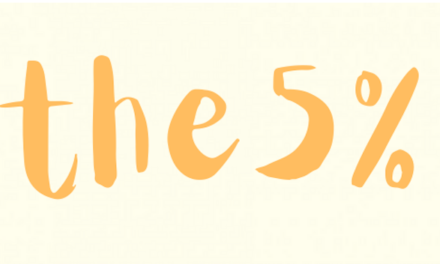What is trust?
Very simply, trust is a reliance or a confidence in the integrity, strength and ability of someone or something. There is a confident expectation or a certainty of future hope in the person.
There will be people in our lives who we trust; and there are different levels of that trust. Then there are people who we simply don’t trust at all.
For good or bad whether we are aware of it or not, we keep a mental track record of who we can trust and exactly what we can trust them with.
No human relationship works well without trust. It simply will remain a very superficial relationship—an acquaintance.
We can trust in and rely on God. We are told to “Trust in the Lord with all our heart and lean not on our own understanding” Proverbs 3:5 (NIV).
If we never fully trust God our relationship with Him will remain very superficial—nothing more than acquaintances.
Our experiences with people can wreak havoc on our ability to trust God because we can project bad experiences and betrayal in human relationships onto our relationship with Him. That is why we are told not to lean on our own understanding because our understanding can be colored by those previous experiences.
I never want to stay at just an acquaintance level of trust with God. I want to fully rely on and have confidence in His integrity, His strength and His ability. I fully trust Him—no matter what I get from people—I fully trust God my Father.
A lack of trust
If trust is a reliance on or confidence in the integrity, strength and ability of a person, then distrust is simply no confidence in a person—and it’s tangible, both people know it.
The relationship will feel like it is clunking along, there may be friction or awkwardness and we may not even know why. We may not be able to put our finger on the reason we feel the way we feel, but we are suspicious.
Our distrust is very expensive. –Ralph Waldo Emerson
If decisions need to be made in a no-trust or low-trust environment, they will be slow and the change around those decisions, even slower.
Trust is tangible and the effects of a lack of trust, or low trust, can be deadly. A marriage will fall apart, a church will not grow, a business will have a struggling bottom line.
Trust is tangible
You can feel it. You can also feel its absence.
When there is high trust in a relationship it is a safe place. You feel very at ease and secure in each other’s presence. There is a comfort level, a known acceptance of each other. The person knows a lot about you, good and bad, but you are loved and accepted in spite of it.
Being loved and accepted frees you to express what’s in your heart without having to monitor or censor you words. You don’t have to make sure you were understood. You don’t try to manage what the other person comes away with from the conversation. There is no need to—as they know you and your intentions and they believe the best in you.
Believing the best promotes an openness of communication. Nothing is held back, there is no fear in sharing dreams, tragedies, triumphs, as the other person isn’t going to jump to the wrong conclusions or make harsh judgments, they simply listen.
A relationship with high trust will be encouraging and affirming and you can depend on the other person to have some tough conversations with you when needed. “Hey, your thinking on that issue is a little off”, or “you might not be aware of this really bad habit, but…” They won’t leave you where you are—they help you grow. But not in a condemning critical way, in a life-promoting, freeing way.
The tangibility of trust is safety. You feel safe in the relationship.
Trust and suspicion
Suspicion is when we suspect something is wrong with little evidence or proof. It may be no more than a slight feeling that leads us to be suspicious.
Sometimes suspicion can be an imagined apprehension. Sometimes our suspicion proves right, but more often they prove wrong—really wrong and it’s damaging to relationships.
At times an individual may give us good reason to be suspicious and to consider their agendas. Maybe they show a lack of integrity, or there’s been a betrayal, they have a track record of unreliability, maybe they are a gossip, or they are a person who shows they just don’t value people.
Sometimes our suspicions are the Holy Spirit saying a very loud WATCH OUT! We need to learn how to hear that and respond.
Other times our suspicion is purely our own weakness, fears and insecurities. Our past experiences make us suspicious of new people and new opportunities and we can miss out on a lot of added richness in relationships; and in leadership.
The moment there is suspicion about a person’s motives, everything he does becomes tainted. –Mahatma Gandhi
Suspicion drains trust. We quickly dismiss a person—the whole of the person, because of the slightest whiff of suspicion we think we caught from them.
Suspicion is not equal to wisdom. We should not be led by suspicions. Although we should use wisdom to get to the bottom of why we are suspicious.
Harry S. Truman said, “We shall never be able to remove suspicion and fear as potential causes of war until communication is permitted to flow, free and open, across international boundaries.”
Mr. Truman was talking about international relations between nations. It is also true of relationships between people. There is sometimes an internal warring in our thought life about the motives of other people and even our own motives.
Open communication and generosity in extending love to people will work to defuse suspicion and then to build trust.
Love looks for the best in people, it always trusts, always hopes, it believes for the best, 1Corinthians 13:4-7 (paraphrased). If we let our suspicions run wild we will never fully love people and believe the best in them.
Be generous in love and use wisdom.
A track record of trust
We mentally keep track of people we can trust, why we trust them and what we can trust them with. We may not realize we do this, but we keep a mental track record of the things people do, or don’t do. We know who we can rely on and we know who we can’t.
Every time we say we will do something and then don’t do it, we are building a track record of unreliability, people will lose trust in us.
BUT every time we follow through with the things we say we will do, even if it is wildly inconvenient or at great cost to us, we are building a track record of reliability and integrity and that builds trust.
What’s your track record?
Love does not guarantee trust
It is totally possible to love someone but not trust them. Love never guarantees trust.
Love and trust get lumped together and it gets confusing because very often they co-exist–and we want them to co-exist. But they are not mutually dependent.
Sadly, many of us hear things like, “If you really loved me, you would trust me.” This is a wrong expectation. It’s emotional manipulation. Love never guarantees trust and as such, should never be demanded like this.
I love my three-year-old little girl. She’s beautiful. I want to give her the world but I would be stupid to hand her the car keys and say, “OK, take it for spin”. She doesn’t have the size to see over the dashboard. She doesn’t have the physical or mental maturity. She would wreck the car.
I have a six-year-old boy and I love him. He wants to make his breakfast in the mornings. He puts the cereal in his bowl. He gets the milk from the fridge and pours it into the bowl; then keeps pouring and pouring and pouring. Milk is everywhere. He’s not quite got the skills he needs to keep it in the bowl, much less clean up his mess.
Then, there is my eight-year-old son. He’s a big boy. I love him. He has a Nintendo DS Lite. I constantly find expensive DS parts left all over the house, in my washing machine, in my car and even in the backyard. He is showing me he is not yet responsible enough for bigger more expensive electronic toys.
As my kids grow I will trust them with more as they show me they can handle it.
It’s no different in the adult world. We can love people and be totally accepting of them but it is unwise to trust people based upon our love for them.
People need to show maturity, some skills, capabilities, or certain capacities. People need to be responsible before we trust them. They need to show they can keep confidences and not gossip; that they have the ability to handle information—especially if it’s delicate. People need to show they are loyal.
We should be instant in our love and acceptance of people but understand that trust is something that grows.
And, believing the best in people, we should generously allow them opportunities to build trust with us. We should also show ourselves trustworthy.
Burden of trust
It’s too easy to drift away from trusting in God and too easy to place this trust, along with a lot of expectation and hope, in people—and we even do this in the church.
We were designed for relationship with the Father. We were designed to place all our hope, expectation, and trust in Him. He is the only One who can handle it all. No person can.
But instead of trusting in God, we are looking to people. This places too much pressure on our relationships and often those we are closest to—it’s no wonder the divorce rate is so high. It is why we see broken trust, hurt, disillusionment, and even forgotten dreams.
We want people to carry the burden of our expectation, and we are hoping in them for things that only God can deliver on. It’s wreaking havoc in relationships and in our ability to trust people and then even God. People will let us down, so we think God also let’s us down and we start to doubt Him.
People were not created to bear that burden—God wants us to give it all to Him. Jesus said, Come to me, all you who are weary and carry heavy burdens, and I will give you rest, Matthew 11:28 (NLT)
All our hopes, dreams and desires, they come from Him. He placed them in our heart so that He could fulfill them in us. As we learn to more fully trust Him and learn to walk obediently submitted to Him, in patience, He fulfills our desires.
Psalm 62:5&8 (Amplified) My soul, wait only upon God and silently submit to Him; for my hope and expectation are from Him… Trust in, lean on, rely on and have confidence in Him at all times… pour out your heart before Him.
Psalm 143:8 (NIV) Let the morning bring me word of your unfailing love, for I have put my trust in you. Show me the way I should go, for to you I entrust my life.
God wants to show Himself faithful and trustworthy. We just have to let Him!
The transparency of trust
It’s common sense to know the person who hides things or keeps things close, the person who seems allusive, leaves him or herself open to suspicion. While the person who is honest and has nothing to hide–you feel like you can trust that person.
Transparency simply means you can see through something.
When a person is transparent they are not trying to hide anything. There is no second-guessing. There is little room for doubt. You know where you stand with them. There is no hidden agenda. There is an upfront honesty and a willingness to engage in conversation. There is an openness about the person.
That is why transparency builds trust.
Interestingly, something that is transparent becomes even more transparent, when light shines on it.
John 3:19, 20 “…Light has come into the world…everyone who does evil hates the light…(because of the) fear that their deeds will be exposed.”
No body wants to be exposed. People feel condemned and so keep things hidden. This is true not only of sin, but also of simple mistakes and the areas in our life where we fall short. We feel shame and so we hide it.
John 3:17-18 clearly says Jesus doesn’t condemn us, He forgives us, there is grace for us. So we shouldn’t fear being honest and transparent before God.
When we let God’s light shine on our lives, living honestly before Him, it’s easy to live this same way before people. This develops trust with both God and people.
10 ways to build trust
1. Be reliable.
2. Be better than on time, be early with time to spare.
3. Follow through and do what you said you would do—even if it costs you. You said you would do it; don’t break your own word.
4. Finish the job, get results, and show you are capable.
5. Don’t make excuses or throw the blame on others. Be responsible and own up for your mistakes. That goes for giving credit where credit is due. Make sure the right person is appreciated for a job well done.
6. Don’t lie. If you lie about even the smallest thing, it will cast doubt and suspicion on everything you do and say.
7. Run to help and serve others.
8. Don’t speak badly or gossip about people, ever; and don’t be in people’s business when you have no business being there. If you are not in a position to help a situation, your involvement becomes purely for gossip.
9. Return phone calls and emails quickly. Silence leaves a person very suspicious. Returning messages is just a basic common decency. Not returning them shows a lack of care or value for people.
10. Do everything with excellence.
10 things that promote low trust
A low trust environment is detrimental to relationships, churches, our businesses and places of work. Here are 10 things that will promote low trust:
1. Dishonesty. The smallest of lies casts suspicion on everything else you do.
2. Broken promises. Not following through with your word.
3. Changing plans because something else—a better offer—comes along.
4. Not keeping confidences and gossip. The minute a person talks to you about someone behind their back, you should assume they will talk to that someone about you–behind your back. Silence that person. Not only let them know you will not listen to them, but silence them. Let them know it’s inappropriate to spread gossip and rumor.
5. Bureaucratic politicking. People out for their own gain, full of agenda, willing to sabotage others. Having to adhere to unending policies and authorizations before anything gets done.
6. Micromanaging people. It tells people they are babies and shows you don’t believe in them.
7. Not valuing or recognizing people or their input, and taking their credit.
8. Not listening to people—shows you don’t value them.
9. Unethical behavior.
10. Ethical but incompetent behavior.





